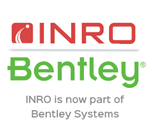Understanding the technical complexity of zero emission bus fleet transition is critical to success
Laurane de Gendre & Brian Smith
WSP Australia
This presentation was delivered at the 2021 Online Conference Series and until October 2022 is only available to registered delegates and Content Access Pass holders via Interchange. For information on accessing this and other presentations please review the Content Access Pass options.
ABSTRACT
Most major Australian cities have committed to transitioning their diesel bus fleet to zero-emission (ZE) technology in the coming years. As transport authorities focus on developing their transition plans, a number of technical considerations should be addressed early as they can significantly influence the transition’s cost and feasibility.
This presentation highlights key technical and operational elements and their implications in the definition of an achievable ZEB transition.
Our advice is informed by WSP’s local and international teams’ experience in more than 70 ZEB projects worldwide. In such a new and rapidly developing field, everybody embarking on the ZEB journey is still an early adopter, and other cities engaged in their transitions have valuable lessons for those starting out.
Some key considerations we highlight include:
- Selecting the technology(ies): for the next 5-10 years, the most mature technology is likely to remain Battery Electric Buses (BEB). Hydrogen Fuel Cell Buses (HFCB) should be considered in the context of expected future advances in battery performance and the viability of fuel supplies;
- BEB range is influenced by many factors. Models can help agencies understand the compatibility of their current operations with ZEBs over time, identify the need for supporting infrastructure, and inform procurement of the right buses;
- Implications for bus depot space, design and operational workflows from power delivery, charging strategy, as well as staff training for maintenance and repair of ZEBs;
- Electricity requirements for BEBs can be substantial and the scale of energy needed, and lead times for upgrades to grid capacity, can be overlooked;
- The ZEB market’s ability to supply and support suitable ZEBs over time is uncertain.
Our presentation will explore how these considerations (and others) influence the success of the ZEB transition, and develop a series of suggested approaches gleaned from WSP’s extensive experience in this field.
Author(s)
Laurane de Gendre | WSP
Laurane de Gendre is a Public Transport Planner with a background in urban engineering. With nine years’ experience worldwide, she is passionate about public transports, and demonstrated strong bus planning and operations skills through projects both locally and overseas (Azerbaidjan, Kazakhstan, France). She is excited to be a part of the Australian transition to zero-emission.
Laurane has a strong background in strategic transport planning and interchange planning. She is also experienced in multimodal public transport network design and optimisation; data analytics, multi-criteria analysis and optioneering; and stakeholder engagement.
Laurane is leading WSP’s national ZEB capability. She started her ZEB journey in 2019 and is involved in several Zero-Emission bus transition projects across Australia, building on the wide knowledge and experience of the Global WSP ZEB team.
Brian Smith | WSP
Brian Smith is a Technical Leader at WSP with over 30 years’ experience in public transport planning and bus operations, management of major multi-modal transport strategies; public transport policy; design and operations of transport interchanges. Trusted advisor for governments and private clients, Brian is involved in multiple ZEB projects across Australia.
Brian’s background in bus operations, along with his extensive national and international experience in integrated public transport network, services and infrastructure planning, means he is able to provide robust, informed advice on transitioning to a zero-emission fleet, including understanding the operational implications of a mixed fleet. Brian also participated in the recent release of the WSP Global “Transitioning to Zero-Emission Technology” White Paper, for which he is the key contract for Australia.








